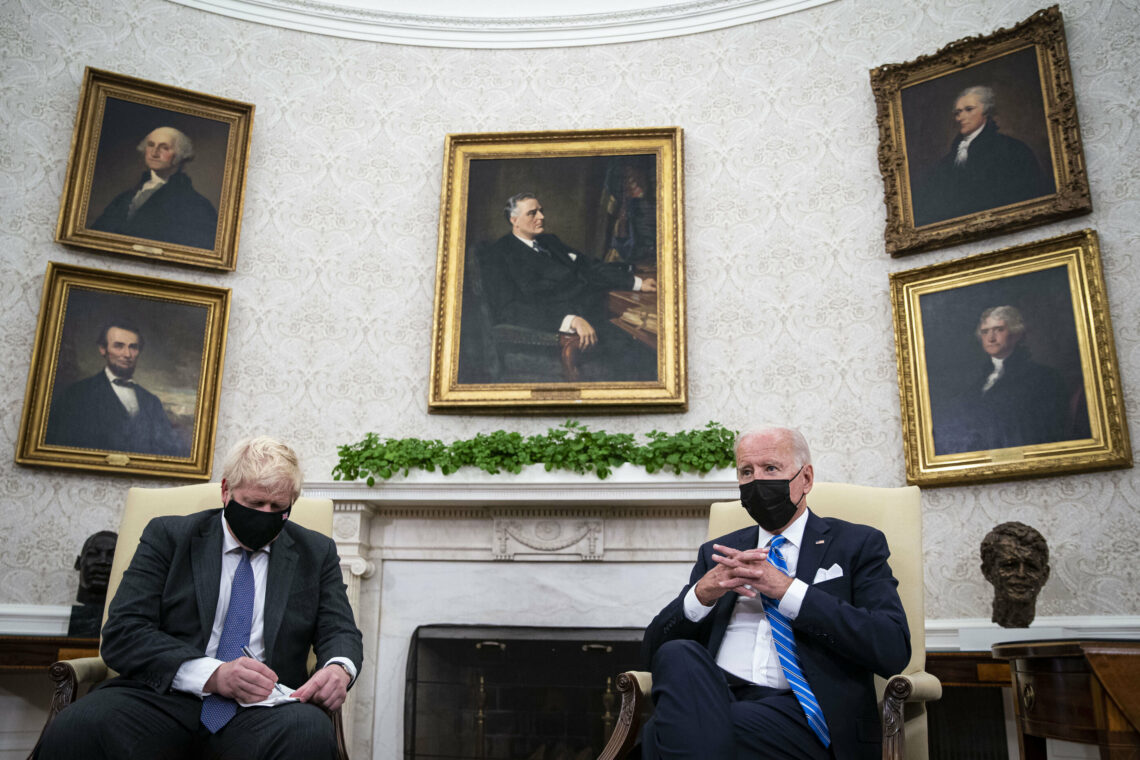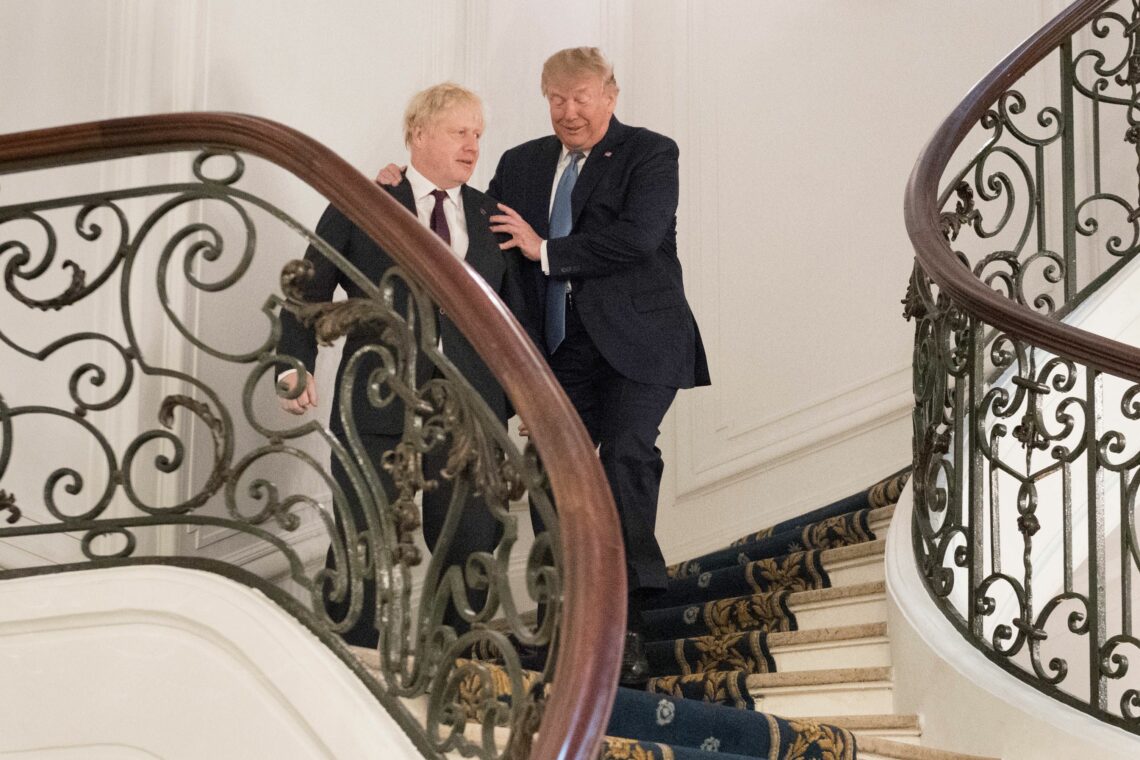The UK plays the long game in relations with the U.S.
The UK and the U.S., traditionally close allies, agreed on most policy matters during the Trump presidency. While London and Washington are likely to keep on cooperating on a broad range of matters, British-American relations could grow more contentious.

In a nutshell
- There are bones of contention in U.S.-UK relations
- President Biden has done little to inspire the UK’s trust
- London may hope for a Republican presidency in 2024
The pro-Brexit Conservative British government fretted about the outcome of the United States’ 2020 presidential election. The administration of Prime Minister Boris Johnson had forged close and comfortable ties with the previous American president, Republican Donald Trump. Still, many in the United Kingdom welcomed the election of his Democratic opponent, Joe Biden, who appeared optimistically determined to foster the “special relationship” between the two countries. However, there are already signs the British government will not walk in lockstep with Washington on several issues. London is already looking past Mr. Biden to the potential return of Republicans in power.
Rapid reversal
The dramatic shift in British attitudes toward the U.S. administration is primarily driven by foreign policy, trade, and the debate over Northern Ireland after Brexit.
The withdrawal from Afghanistan triggered shockwaves across the British government. Conservative members of parliament and cabinet officials were openly critical of President Biden’s decision and the conduct of the evacuation from Kabul Airport. This very public criticism was notable, especially since previously the government had gone out of its way to signal a strong willingness to work with the Biden administration. Criticism of Mr. Biden also came from the ranks of the opposition parties in parliament.
The British increasingly believe that there will be no movement on a trade deal until after the midterms next year.
While Prime Minister Johnson had a relatively successful and cordial meeting with President Biden at the White House on September 21, after the United Nations General Assembly meeting, the response to the summit in London was generally not as positive as expected. Many members of parliament expressed unhappiness with President Biden’s treatment of their prime minister, saying the American leader had come across as rude, arrogant and unpleasant. Some privately questioned the president’s mental faculties and complained that he appeared increasingly unstable.
Topping the list of policy frustrations was that Mr. Biden refused to demonstrate any support whatsoever for a U.S.-UK Free Trade Agreement (FTA). The FTA was strongly supported by the previous U.S. administration. In Washington and London, there was a brief flurry of discussion over the possibility that the UK would seek to join the U.S-Mexico-Canada FTA as an alternative. Prime Minister Johnson threw cold water on that idea and the proposal seems stillborn.
The British increasingly believe that there will be no movement on a trade deal until after the midterms next year. Many Conservatives are hoping Republicans take the House and Senate and put pressure on the White House to revive the FTA. Others believe the UK will have to wait until a conservative administration is elected for a deal to be implemented.

U.S. and British leaders did reach a broad consensus on climate change initiatives, but this was an easy political lift for both sides and did not mitigate London’s disappointment with the meeting’s outcome.
Many in London believe the Biden administration is taking a dangerous trajectory on foreign policy. There is a great deal of interest in the 2024 presidential race, and how the policy positions of potential candidates could impact the UK and the future of Brexit on the world stage.
The British also made clear that they did not appreciate the U.S. weighing in on the side of the European Union on post-Brexit relations, in particular on the issue of Northern Ireland. President Biden supports the EU position of cross-border trade between Ireland and Northern Ireland following EU protocols. The UK government wants to eliminate most of the checks and customs procedures so goods can flow more freely. Mr. Johnson also wants to prevent the European Commission and the European Court of Justice from overseeing implementation. Moreover, he wants to freeze EU legal action while negotiations are ongoing. The UK leader will not take kindly to the U.S. president weighing in to undermine his position. There is every expectation that the British will move forward in seeking to amend the Northern Ireland Protocol despite U.S. complaints.
The Indo-Pacific dilemma
The British are extremely happy with the announcement of the Australia-UK-U.S. (AUKUS) plan to cooperate on the development of nuclear-powered submarines for Australia. London, however, was dismayed at the diplomatic row the announcement triggered. It appears the Biden team rushed out the announcement to show allied cooperation in the Indo-Pacific after the withering criticism Washington received following its uncoordinated withdrawal from Afghanistan. The declaration, however, caught Europeans (particularly France, whose submarine deal with Australia was superseded by the agreement) by surprise, triggering an angry spate of criticism.
The British will seek to deepen relations with American conservatives, particularly in Congress.
While the British welcomed AUKUS, as well as U.S. cooperation on climate change, these developments did not assuage resentment over President Biden’s foreign policy missteps, the Northern Ireland issue, and trade. Rather, the British are likely to be warier and less confident in American leadership going forward, fearing Washington will be more willing to support the views of Brussels and Berlin rather than maintain the special UK-U.S. relationship.
Scenarios
The UK will continue to seek constructive relations and align where possible but demonstrate much more willingness to buck the Biden administration on issues where London disagrees. The British will also seek to deepen relations with American conservatives, particularly in Congress, and potential candidates that will run for president in 2024. British Conservatives are going to hedge on the American political scene, expecting the Republicans to make a comeback.
On climate change and cooperation in the Indo-Pacific, the British government will continue to lean forward.
The Biden administration could attempt to mend relations with London after the midterms, if the president’s party performs poorly and the White House continues to see reversals and setbacks on the foreign policy front. Mr. Biden might well be looking for friends by then. The British will be there, but for a price – for example, moving the U.S.-UK FTA back at the top of the agenda and putting the Northern Ireland border issue to the side. That is a price President Biden will be reluctant to pay. As a result, the two leaders, absent a unifying foreign policy crisis, might just muddle through the next few years.







